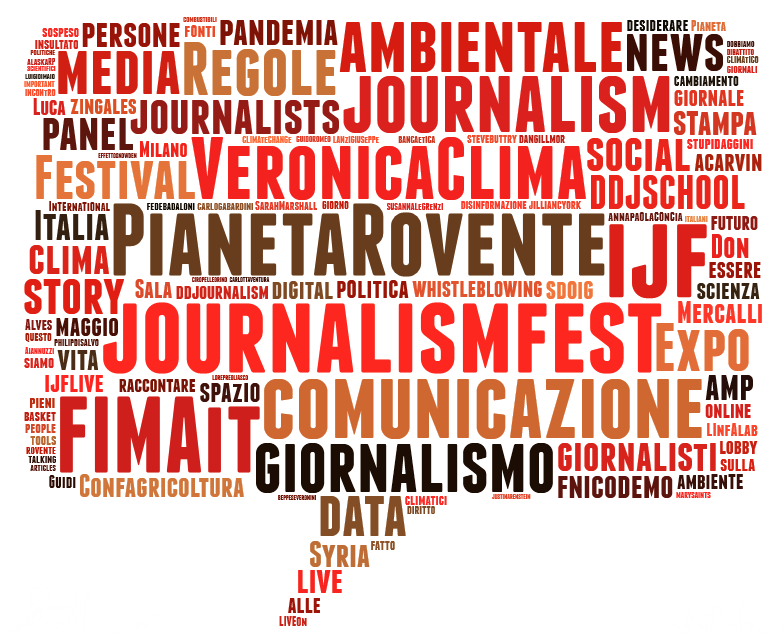On the second day of #ijf14, 3072 users produced 11,018 tweets, half of them as retweets and 6.7% as replies. Thirty-three percent of conversations were in English. National online mainstream sources diffused 67% of the news. The number of images shared on Instagram went up compared to last year and comprised about 10% of the total images shared via all media.
One of the most interesting issues that was discussed online was the importance of the individual as an agent for change: a change brought about by democratization of web-generated action.
The role and the responsibility of individual becomes, typically, a fundamental subject for the democracy. There are various ways to carry out this kind of participation. One of the most innovative is Crowdfunding, the very thing that made this edition of #ijf14 possible.
Crowdfunding offers the possibility to take on an active role in editorial projects. A case in point is the experience of De Correspondent, an online journalism startup financed by reader contributions instead of advertising or a paywall.
The reader becomes creator of conversations and of content. However, how long can a newspaper created and completely financed by readers last?
An individual becomes responsible for the content produced and for the audience.
«We see our journalists as conversation leaders and our readers as experts.» @decorrespondent‘s publisher @ejpfauth #ijf14
— David Bauer (@davidbauer) 1 Maggio 2014
32360 members now pay 60 euro/year for @decorrespondent, growth of 74% in first 7 months #ijf14 — Impressive, but can this really last? — Raymond Frenken (@RaymondFrenken) 1 Maggio 2014
A peak in conversation on Twitter took place at 5.45 p.m. due to a high level of attention on two panel discussions: Growth of new story forms, and Long form journalism: how to finance, produce and disseminate in-depth reportages in the digital age.

All details about web conversation on the first #ijf14 day can be found on the platform Buzzdetector: Buzzflow.


